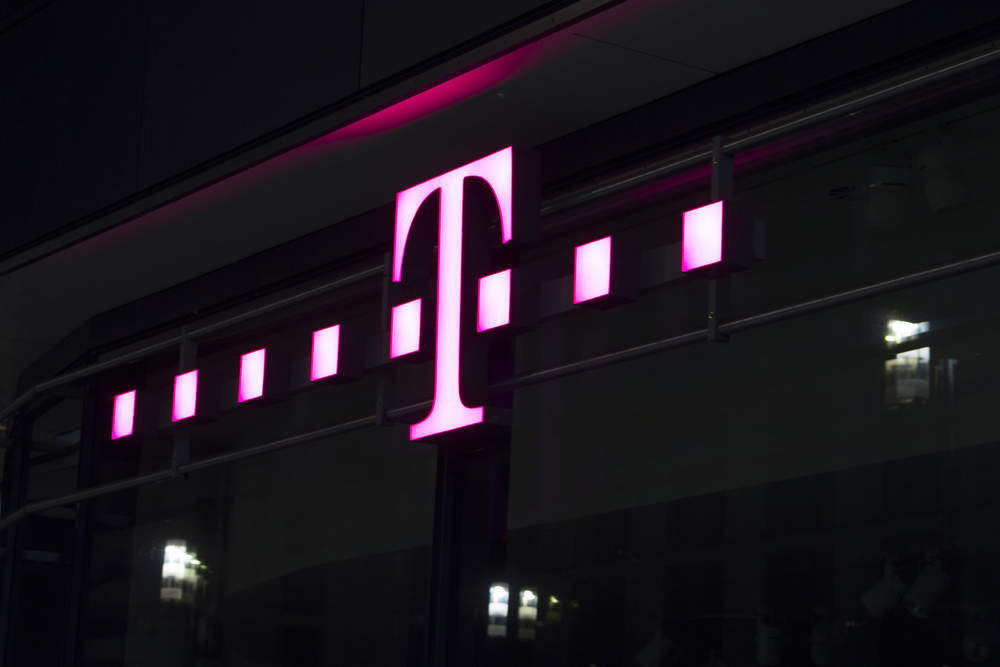Years of on-and-off merger negotiations between US mobile operators T-Mobile and Sprint have finally resulted in a proposed tie-up valued at $26.5 billion. But the harder part will be convincing regulators that it’s a good idea.
US mobile operator rivals T-Mobile and Sprint announced a merger in an all-stock transaction valued at $26.5 billion over the weekend. But it’s no slam dunk. Getting regulatory approval will be the hardest part of this proposed transaction.
T-Mobile and Sprint have been engaged in on-and-off again merger discussions since 2014 but were never able to agree on terms.
T-Mobile reportedly had always insisted on controlling the new company and has gotten its way in this proposed merger. T-Mobile’s parent company Deutsche Telekom will own 42% of the merged entity, while Sprint’s parent SoftBank will own 27%.
T-Mobile’s colourful CEO, John Legere, known for his irreverent, curse-filled style, will be at the helm as CEO.
How can the two companies negotiate their way with regulators?
How well do you really know your competitors?
Access the most comprehensive Company Profiles on the market, powered by GlobalData. Save hours of research. Gain competitive edge.

Thank you!
Your download email will arrive shortly
Not ready to buy yet? Download a free sample
We are confident about the unique quality of our Company Profiles. However, we want you to make the most beneficial decision for your business, so we offer a free sample that you can download by submitting the below form
By GlobalDataWhile a tie-up will create significant shareholder value, brand equity and scale for the two companies, reducing the number of nationwide mobile operators from four to three will be difficult for regulators — even pro-business regulators — to swallow.
And consumer advocacy groups will be vehemently opposed as T-Mobile and Sprint are the country’s two most aggressive wireless companies when it comes to pricing and promotions.
Will a merger be good for consumer pricing? It can’t be.
The failed merger in 2011 between AT&T and T-Mobile actually sparked massive pricing and service innovation at T-Mobile.
T-Mobile relaunched itself as the fiercely pro-consumer un-carrier, and changed the competitive dynamics of the entire US mobile industry dramatically with a number of high-profile moves, from ending phone subsidies to zero-rating video and ushering in all-inclusive pricing.
This prompted Sprint to release its own radical pricing counter-moves, such as half-off iPhones and free service.
That innovation energy will likely fizz out if the two tie up. With just three carriers in the market, pricing pressure will likely still exist, but overall prices will most certainly rise.
Moreover, neither company can demonstrate that its future depends on a merger. T-Mobile outpaces all other operators when it comes to adding new customers every quarter. Sprint has a shakier balance sheet but also demonstrates it has no problem competing in the market.
There is also no fourth national player that can fill in the competitive gap. Cable operators such as Comcast are buying wireless services from Verizon on a wholesale basis and are not in a position to garner the required scale to compete with the incumbents.
Still, the wireless business is an expensive one. The next-generation of technology, known as 5G, will require some extensive capital in terms of acquiring the airwaves necessary to operate services and upgrade to new technology that will usher in ultrafast broadband speeds.
It will be less expensive for T-Mobile and Sprint to build a robust 5G network. In fact, the new entity’s 5G network would be quite formidable; that’s likely to be appealing to the Trump Administration, which fears China’s lead in the 5G race.
At any rate, Legere & co. have an uphill battle convincing the US Federal Communications Commission and the Department of Justice that a merger will be good for consumers.
T-Mobile may become a victim of its own success.







Related Company Profiles
AMP Ltd
Comcast Corp
SoftBank Corp
Deutsche Telekom AG